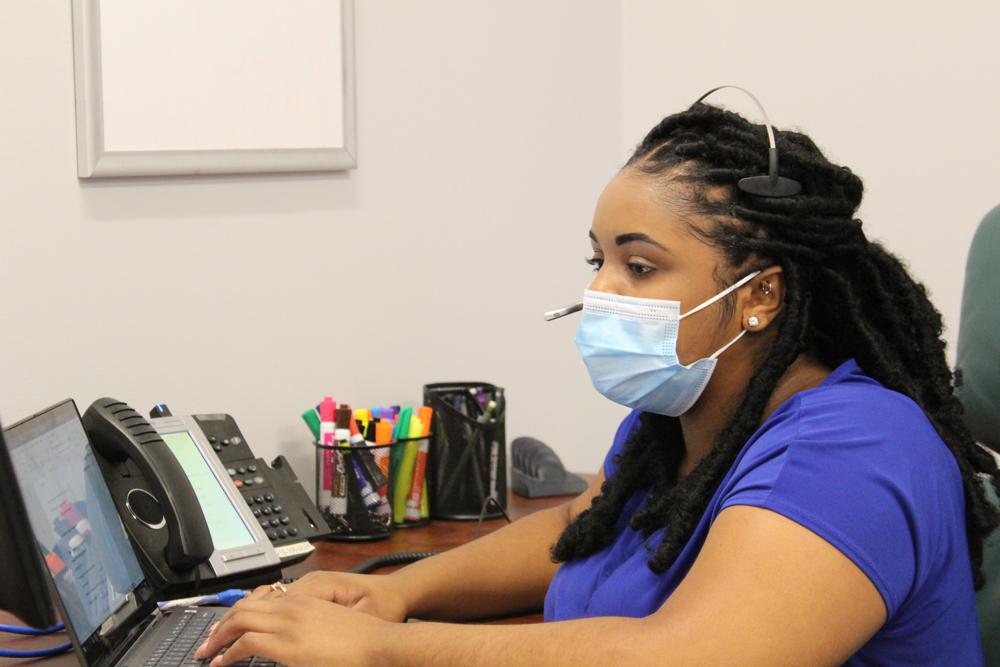
DANVILLE, Va. – Landlords and tenants filled courtrooms here on the Southside and throughout Virginia and North Carolina Monday as evictions resumed across the U.S.
The Biden administration allowed the federal eviction moratorium to expire over the weekend and Congress was unable to extend it.
Historic amounts of rental assistance allocated by Congress had been expected to avert a crisis. But the distribution has been painfully slow: Only about $3 billion of the first tranche of $25 billion had been distributed through June by states and localities. A second amount of $21.5 billion will go to the states.
It wasn’t long after Iliana Diaz began her first day in person at Legal Aid’s Raleigh office that she and others were hit by a tsunami of phone calls.
Seated and masked in a small room on Monday, Diaz was among the five call center workers frantically trying to do the unachievable: respond to all the messages that had come in from low-income North Carolinians facing the threat of eviction after the federal eviction moratorium expired over the weekend.
The bilingual intake specialist who joined Legal Aid of North Carolina has seen a sharp rise in recent call volume and is motivated to help as many people as she can.
“If I don’t answer that phone call, then potentially that person may not have the chance to call back or they may just never have the chance to get any assistance whatsoever,” Diaz said.
For many struggling renters who have received eviction notices, Legal Aid can be the last line of defense. Depending on how much money they make, the law firm will connect them with a free attorney, another agency or share information on rental assistance programs.
North Carolina’s Housing Opportunities and Prevention of Evictions (HOPE) program offers rent and utility assistance to low-income renters in 88 of the smallest counties in the state. Twelve larger counties are managing their own programs.
The state has set aside roughly $1.3 billion to help tenants cover their housing and utility costs, with nearly $1 billion going to the HOPE program and $300 million to the 12 larger counties.
North Carolina estimates it has awarded a total of more than $305 million to 81,039 different households that qualify for the HOPE program. The 12 counties overseeing their own programs have expended approximately $64 million, according to state officials.
On a typical Monday, the Legal Aid intake staff of a dozen, including five people working in person at the firm’s Raleigh office, will receive about 1,500 calls. Of those, the office will put about 500 in its system. The workers will be lucky if they can respond to half of that.